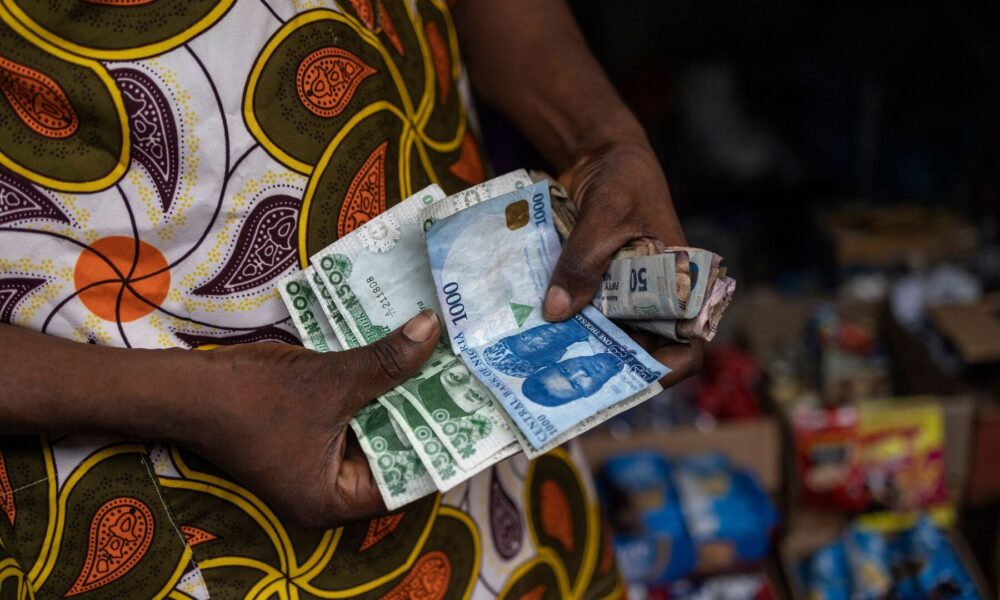Naira
Naira Exchange Rate Discrepancy Fuels Concerns Over Nigerian Currency Stability

Fitch Ratings Inc. has highlighted a growing divergence between the official and parallel market exchange rates of the Nigerian naira, signaling potential challenges in stabilizing the currency and raising the specter of further depreciation.
As of Wednesday, the naira was trading at 1002 per dollar in the parallel market, contrasting sharply with its official rate of 745.19 naira/dollar on the FMDQ exchange platform.
This stark disparity has emerged over the past two weeks, primarily due to the Central Bank’s reluctance to increase the supply of dollars in the official window, contributing to increased volatility in the official exchange rate.
Non-deliverable contracts for the naira traded at a record 821.38 per dollar on the same day.
The recent appointment of Olayemi Cardoso as the Nigerian Central Bank Governor has left markets uncertain about his policy direction, adding to the currency’s instability.
This unsettling situation mirrors the country’s decision to devalue the naira by 40% against the dollar in June, part of an effort to attract foreign investment and revitalize the economy.
While initially successful in narrowing the gap between official and parallel rates, the recent widening suggests that the nation may face difficulties sustaining exchange-rate liberalization.
Before the currency reforms, the gap between the official and parallel market rates was even more substantial, reaching as high as 70%.
The current predicament underscores the need for strategic measures to stabilize the Nigerian naira and ensure economic resilience in these uncertain times.